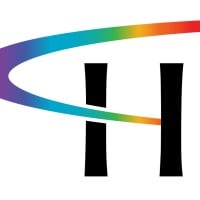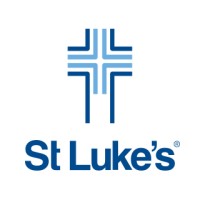
DMS Health Technologies Company Cyber Security Posture
dmshealth.comAs one of the country’s largest providers of mobile imaging equipment and accessories, DMS owns and operates a full line of mobile MRI, CT, Cath Lab, PET/CT, and Nuclear Medicine equipment to meet all your diagnostic imaging needs. Rental units are available from most major manufacturers and offered in a wide variety of product configurations and pricing to meet the needs of almost every budget and clinical requirements. In keeping with our history of innovation, we are embarking on a journey to broaden the reach of healthcare with a groundbreaking mobile approach that extends the availability and flexibility of healthcare across the continent. We are taking critical health services on the road and delivering them right where you need them. In today’s complex healthcare environment, it’s more vital than ever to expand capacity and offer easier, more convenient access to communities and populations that need it the most. DMS delivers mobile health solutions right to your local community, focusing on industry challenges like chronic condition management thereby reducing costs and helping support your optimum level of wellness. DMS Health Technologies. Your mobile solution for 50 years.
DHT Company Details
dms-health-technologies
171 employees
4410
62
Hospitals and Health Care
dmshealth.com
Scan still pending
DMS_9490483
In-progress
Between 800 and 900
This score is AI-generated and less favored by cyber insurers, who prefer the TPRM score.
 DHT Global Score
DHT Global Score.png)

DMS Health Technologies Company Scoring based on AI Models
| Model Name | Date | Description | Current Score Difference | Score |
|---|---|---|---|---|
| AVERAGE-Industry | 03-12-2025 | This score represents the average cybersecurity rating of companies already scanned within the same industry. It provides a benchmark to compare an individual company's security posture against its industry peers. | N/A | Between 800 and 900 |
DMS Health Technologies Company Cyber Security News & History
| Entity | Type | Severity | Impact | Seen | Url ID | Details | View |
|---|---|---|---|---|---|---|---|
| DMS Health Technologies | Data Leak | 60 | 3 | 05/2023 | DMS201017923 | Link | |
Rankiteo Explanation : Attack with significant impact with internal employee data leaksDescription: DMS Health Technologies, the imaging provider Sanford Health utilises for their mobile heart screen trucks, suffered from data security incident. Name, date of birth, date of service, physician name, and type of exam were all possibly compromised patient data. One of the several DMS contracted partners impacted by this incident is Sanford Health. DMS will inform the impacted patients and provide free identity monitoring services through Kroll to some of the affected individuals. The letter they get will contain those specifics. The data breach is being informed to more than 21,000 (21,211) Sanford Health patients, including 10,334 in North Dakota, 4,967 in Minnesota, 2,685 in South Dakota, 1,058 in Iowa, and a small number in 36 other states. | |||||||
DMS Health Technologies Company Subsidiaries

As one of the country’s largest providers of mobile imaging equipment and accessories, DMS owns and operates a full line of mobile MRI, CT, Cath Lab, PET/CT, and Nuclear Medicine equipment to meet all your diagnostic imaging needs. Rental units are available from most major manufacturers and offered in a wide variety of product configurations and pricing to meet the needs of almost every budget and clinical requirements. In keeping with our history of innovation, we are embarking on a journey to broaden the reach of healthcare with a groundbreaking mobile approach that extends the availability and flexibility of healthcare across the continent. We are taking critical health services on the road and delivering them right where you need them. In today’s complex healthcare environment, it’s more vital than ever to expand capacity and offer easier, more convenient access to communities and populations that need it the most. DMS delivers mobile health solutions right to your local community, focusing on industry challenges like chronic condition management thereby reducing costs and helping support your optimum level of wellness. DMS Health Technologies. Your mobile solution for 50 years.
Access Data Using Our API

Get company history
.png)
DHT Cyber Security News
Dominion DMS Announces A New Business Continuity Plan For Automotive Dealers
VUE Net aims to equip automotive dealers with a solution that ensures uninterrupted business operations while eliminating manual processes.
Why a hack at CDK Global is casting a shadow on US auto sales
CDK Global on June 19 briefly shut down all its systems as it investigated a cyber incident, triggering a knock-on effect across the industry.
CDK Hackers Want Millions in Ransom to End Car Dealership Outage
A demand in the tens of millions of dollars comes after hackers sought $50 million from a lab services company at the center of an ongoing ...
Twitter has a lot of your data. Here's what you can do about it.
Twitter holds a range of other types of user data, including phone numbers and the internet protocol addresses used to log in, ...
Delete Your Twitter DMs Now, Warns Security Expert
Twitter users should delete their direct messages (DMs) now to lower the risk of confidential data leaking, according to a security expert.
Auto Safety Tech Adds New IC Design Challenges
The role of AI/ML in automobiles is widening as chipmakers incorporate more intelligence into chips used in vehicles, setting the stage for ...
Digital Identity and Security
Thales for IoT: Enabling Cyber Secure IoT Connectivity. Our products are at the heart of connected industrial IoT devices from smart energy to car infotainment.

DHT Similar Companies

Beth Israel Lahey Health
Beth Israel Lahey Health is a new, integrated system providing patients with better care wherever they are. Care informed by world-class research and education. We are doctors and nurses, technicians and social workers, innovators and educators, and so many others. All with a shared vision for what

Enhabit Home Health & Hospice
At Enhabit, we are expanding what’s possible for patient care in the home. As a national leader in home health and hospice, we provide extraordinary care that patients and their families can count on. And our talented, compassionate care teams make it all possible. They bring their clinical expert

Highmark Health
A national blended health organization, Highmark Health and our leading businesses support millions of customers with products, services and solutions closely aligned to our mission of creating remarkable health experiences, freeing people to be their best. Headquartered in Pittsburgh, we're region

Aneurin Bevan University Health Board
Aneurin Bevan University Health Board was established on the 1st October 2009 and covers the areas of Blaenau Gwent, Caerphilly, Monmouthshire, Newport, Torfaen and South Powys. The Health Board employs over 14,000 staff, two thirds of whom are involved in direct patient care. There are more than

St. Luke's Health System
As the only Idaho-based, not-for-profit health system, St. Luke’s Health System is dedicated to our mission “To improve the health of people in the communities we serve.” Today that means not only treating you when you’re sick or hurt, but doing everything we can to help you be as healthy as possibl

St. Olavs hospital, Trondheim University Hospital
St. Olavs hospital, Trondheim University Hospital, is integrated with NTNU, the Norwegian University of Science and Technology in Trondheim, and owned by the Central Norway Regional Health Authority. The main tasks of the Hospital (public health enterprise) are patient treatment, the teaching of pa

Frequently Asked Questions (FAQ) on Cybersecurity Incidents
DHT CyberSecurity History Information
Total Incidents: According to Rankiteo, DHT has faced 1 incidents in the past.
Incident Types: The types of cybersecurity incidents that have occurred include ['Data Leak'].
Total Financial Loss: The total financial loss from these incidents is estimated to be {total_financial_loss}.
Cybersecurity Posture: The company's overall cybersecurity posture is described as As one of the country’s largest providers of mobile imaging equipment and accessories, DMS owns and operates a full line of mobile MRI, CT, Cath Lab, PET/CT, and Nuclear Medicine equipment to meet all your diagnostic imaging needs. Rental units are available from most major manufacturers and offered in a wide variety of product configurations and pricing to meet the needs of almost every budget and clinical requirements. In keeping with our history of innovation, we are embarking on a journey to broaden the reach of healthcare with a groundbreaking mobile approach that extends the availability and flexibility of healthcare across the continent. We are taking critical health services on the road and delivering them right where you need them. In today’s complex healthcare environment, it’s more vital than ever to expand capacity and offer easier, more convenient access to communities and populations that need it the most. DMS delivers mobile health solutions right to your local community, focusing on industry challenges like chronic condition management thereby reducing costs and helping support your optimum level of wellness. DMS Health Technologies. Your mobile solution for 50 years..
Detection and Response: The company detects and responds to cybersecurity incidents through {description_of_detection_and_response_process}.
Incident Details
Incident 1: Ransomware Attack
Title: {Incident_Title}
Description: {Brief_description_of_the_incident}
Date Detected: {Detection_Date}
Date Publicly Disclosed: {Disclosure_Date}
Date Resolved: {Resolution_Date}
Type: {Type_of_Attack}
Attack Vector: {Attack_Vector}
Vulnerability Exploited: {Vulnerability}
Threat Actor: {Threat_Actor}
Motivation: {Motivation}
Incident 2: Data Breach
Title: {Incident_Title}
Description: {Brief_description_of_the_incident}
Date Detected: {Detection_Date}
Date Publicly Disclosed: {Disclosure_Date}
Date Resolved: {Resolution_Date}
Type: {Type_of_Attack}
Attack Vector: {Attack_Vector}
Vulnerability Exploited: {Vulnerability}
Threat Actor: {Threat_Actor}
Motivation: {Motivation}
Common Attack Types: As of now, the company has not encountered any reported incidents involving common cyberattacks.
Identification of Attack Vectors: The company identifies the attack vectors used in incidents through {description_of_identification_process}.
Impact of the Incidents
Incident 1: Ransomware Attack
Financial Loss: {Financial_Loss}
Data Compromised: {Data_Compromised}
Systems Affected: {Systems_Affected}
Downtime: {Downtime}
Operational Impact: {Operational_Impact}
Conversion Rate Impact: {Conversion_Rate_Impact}
Revenue Loss: {Revenue_Loss}
Customer Complaints: {Customer_Complaints}
Brand Reputation Impact: {Brand_Reputation_Impact}
Legal Liabilities: {Legal_Liabilities}
Identity Theft Risk: {Identity_Theft_Risk}
Payment Information Risk: {Payment_Information_Risk}
Incident 2: Data Breach
Financial Loss: {Financial_Loss}
Data Compromised: {Data_Compromised}
Systems Affected: {Systems_Affected}
Downtime: {Downtime}
Operational Impact: {Operational_Impact}
Conversion Rate Impact: {Conversion_Rate_Impact}
Revenue Loss: {Revenue_Loss}
Customer Complaints: {Customer_Complaints}
Brand Reputation Impact: {Brand_Reputation_Impact}
Legal Liabilities: {Legal_Liabilities}
Identity Theft Risk: {Identity_Theft_Risk}
Payment Information Risk: {Payment_Information_Risk}
Average Financial Loss: The average financial loss per incident is {average_financial_loss}.
Commonly Compromised Data Types: The types of data most commonly compromised in incidents are {list_of_commonly_compromised_data_types}.
Incident 1: Ransomware Attack
Entity Name: {Entity_Name}
Entity Type: {Entity_Type}
Industry: {Industry}
Location: {Location}
Size: {Size}
Customers Affected: {Customers_Affected}
Incident 2: Data Breach
Entity Name: {Entity_Name}
Entity Type: {Entity_Type}
Industry: {Industry}
Location: {Location}
Size: {Size}
Customers Affected: {Customers_Affected}
Response to the Incidents
Incident 1: Ransomware Attack
Incident Response Plan Activated: {Yes/No}
Third Party Assistance: {Yes/No}
Law Enforcement Notified: {Yes/No}
Containment Measures: {Containment_Measures}
Remediation Measures: {Remediation_Measures}
Recovery Measures: {Recovery_Measures}
Communication Strategy: {Communication_Strategy}
Adaptive Behavioral WAF: {Adaptive_Behavioral_WAF}
On-Demand Scrubbing Services: {On_Demand_Scrubbing_Services}
Network Segmentation: {Network_Segmentation}
Enhanced Monitoring: {Enhanced_Monitoring}
Incident 2: Data Breach
Incident Response Plan Activated: {Yes/No}
Third Party Assistance: {Yes/No}
Law Enforcement Notified: {Yes/No}
Containment Measures: {Containment_Measures}
Remediation Measures: {Remediation_Measures}
Recovery Measures: {Recovery_Measures}
Communication Strategy: {Communication_Strategy}
Adaptive Behavioral WAF: {Adaptive_Behavioral_WAF}
On-Demand Scrubbing Services: {On_Demand_Scrubbing_Services}
Network Segmentation: {Network_Segmentation}
Enhanced Monitoring: {Enhanced_Monitoring}
Incident Response Plan: The company's incident response plan is described as {description_of_incident_response_plan}.
Third-Party Assistance: The company involves third-party assistance in incident response through {description_of_third_party_involvement}.
Data Breach Information
Incident 2: Data Breach
Type of Data Compromised: {Type_of_Data}
Number of Records Exposed: {Number_of_Records}
Sensitivity of Data: {Sensitivity_of_Data}
Data Exfiltration: {Yes/No}
Data Encryption: {Yes/No}
File Types Exposed: {File_Types}
Personally Identifiable Information: {Yes/No}
Prevention of Data Exfiltration: The company takes the following measures to prevent data exfiltration: {description_of_prevention_measures}.
Handling of PII Incidents: The company handles incidents involving personally identifiable information (PII) through {description_of_handling_process}.
Ransomware Information
Incident 1: Ransomware Attack
Ransom Demanded: {Ransom_Amount}
Ransom Paid: {Ransom_Paid}
Ransomware Strain: {Ransomware_Strain}
Data Encryption: {Yes/No}
Data Exfiltration: {Yes/No}
Ransom Payment Policy: The company's policy on paying ransoms in ransomware incidents is described as {description_of_ransom_payment_policy}.
Data Recovery from Ransomware: The company recovers data encrypted by ransomware through {description_of_data_recovery_process}.
Regulatory Compliance
Incident 1: Ransomware Attack
Regulations Violated: {Regulations_Violated}
Fines Imposed: {Fines_Imposed}
Legal Actions: {Legal_Actions}
Regulatory Notifications: {Regulatory_Notifications}
Incident 2: Data Breach
Regulations Violated: {Regulations_Violated}
Fines Imposed: {Fines_Imposed}
Legal Actions: {Legal_Actions}
Regulatory Notifications: {Regulatory_Notifications}
Regulatory Frameworks: The company complies with the following regulatory frameworks regarding cybersecurity: {list_of_regulatory_frameworks}.
Ensuring Regulatory Compliance: The company ensures compliance with regulatory requirements through {description_of_compliance_measures}.
Lessons Learned and Recommendations
Incident 1: Ransomware Attack
Lessons Learned: {Lessons_Learned}
Incident 2: Data Breach
Lessons Learned: {Lessons_Learned}
Incident 1: Ransomware Attack
Recommendations: {Recommendations}
Incident 2: Data Breach
Recommendations: {Recommendations}
Key Lessons Learned: The key lessons learned from past incidents are {list_of_key_lessons_learned}.
Implemented Recommendations: The company has implemented the following recommendations to improve cybersecurity: {list_of_implemented_recommendations}.
References
Additional Resources: Stakeholders can find additional resources on cybersecurity best practices at {list_of_additional_resources}.
Investigation Status
Incident 1: Ransomware Attack
Investigation Status: {Investigation_Status}
Incident 2: Data Breach
Investigation Status: {Investigation_Status}
Communication of Investigation Status: The company communicates the status of incident investigations to stakeholders through {description_of_communication_process}.
Stakeholder and Customer Advisories
Incident 1: Ransomware Attack
Stakeholder Advisories: {Stakeholder_Advisories}
Customer Advisories: {Customer_Advisories}
Incident 2: Data Breach
Stakeholder Advisories: {Stakeholder_Advisories}
Customer Advisories: {Customer_Advisories}
Advisories Provided: The company provides the following advisories to stakeholders and customers following an incident: {description_of_advisories_provided}.
Initial Access Broker
Incident 1: Ransomware Attack
Entry Point: {Entry_Point}
Reconnaissance Period: {Reconnaissance_Period}
Backdoors Established: {Backdoors_Established}
High Value Targets: {High_Value_Targets}
Data Sold on Dark Web: {Yes/No}
Incident 2: Data Breach
Entry Point: {Entry_Point}
Reconnaissance Period: {Reconnaissance_Period}
Backdoors Established: {Backdoors_Established}
High Value Targets: {High_Value_Targets}
Data Sold on Dark Web: {Yes/No}
Monitoring and Mitigation of Initial Access Brokers: The company monitors and mitigates the activities of initial access brokers through {description_of_monitoring_and_mitigation_measures}.
Post-Incident Analysis
Incident 1: Ransomware Attack
Root Causes: {Root_Causes}
Corrective Actions: {Corrective_Actions}
Incident 2: Data Breach
Root Causes: {Root_Causes}
Corrective Actions: {Corrective_Actions}
Post-Incident Analysis Process: The company's process for conducting post-incident analysis is described as {description_of_post_incident_analysis_process}.
Corrective Actions Taken: The company has taken the following corrective actions based on post-incident analysis: {list_of_corrective_actions_taken}.
Additional Questions
General Information
Ransom Payment History: The company has {paid/not_paid} ransoms in the past.
Last Ransom Demanded: The amount of the last ransom demanded was {last_ransom_amount}.
Last Attacking Group: The attacking group in the last incident was {last_attacking_group}.
Incident Details
Most Recent Incident Detected: The most recent incident detected was on {most_recent_incident_detected_date}.
Most Recent Incident Publicly Disclosed: The most recent incident publicly disclosed was on {most_recent_incident_publicly_disclosed_date}.
Most Recent Incident Resolved: The most recent incident resolved was on {most_recent_incident_resolved_date}.
Impact of the Incidents
Highest Financial Loss: The highest financial loss from an incident was {highest_financial_loss}.
Most Significant Data Compromised: The most significant data compromised in an incident was {most_significant_data_compromised}.
Most Significant System Affected: The most significant system affected in an incident was {most_significant_system_affected}.
Response to the Incidents
Third-Party Assistance in Most Recent Incident: The third-party assistance involved in the most recent incident was {third_party_assistance_in_most_recent_incident}.
Containment Measures in Most Recent Incident: The containment measures taken in the most recent incident were {containment_measures_in_most_recent_incident}.
Data Breach Information
Most Sensitive Data Compromised: The most sensitive data compromised in a breach was {most_sensitive_data_compromised}.
Number of Records Exposed: The number of records exposed in the most significant breach was {number_of_records_exposed}.
Ransomware Information
Highest Ransom Demanded: The highest ransom demanded in a ransomware incident was {highest_ransom_demanded}.
Highest Ransom Paid: The highest ransom paid in a ransomware incident was {highest_ransom_paid}.
Regulatory Compliance
Highest Fine Imposed: The highest fine imposed for a regulatory violation was {highest_fine_imposed}.
Most Significant Legal Action: The most significant legal action taken for a regulatory violation was {most_significant_legal_action}.
Lessons Learned and Recommendations
Most Significant Lesson Learned: The most significant lesson learned from past incidents was {most_significant_lesson_learned}.
Most Significant Recommendation Implemented: The most significant recommendation implemented to improve cybersecurity was {most_significant_recommendation_implemented}.
References
Most Recent Source: The most recent source of information about an incident is {most_recent_source}.
Most Recent URL for Additional Resources: The most recent URL for additional resources on cybersecurity best practices is {most_recent_url}.
Investigation Status
Current Status of Most Recent Investigation: The current status of the most recent investigation is {current_status_of_most_recent_investigation}.
Stakeholder and Customer Advisories
Most Recent Stakeholder Advisory: The most recent stakeholder advisory issued was {most_recent_stakeholder_advisory}.
Most Recent Customer Advisory: The most recent customer advisory issued was {most_recent_customer_advisory}.
Initial Access Broker
Most Recent Entry Point: The most recent entry point used by an initial access broker was {most_recent_entry_point}.
Most Recent Reconnaissance Period: The most recent reconnaissance period for an incident was {most_recent_reconnaissance_period}.
Post-Incident Analysis
Most Significant Root Cause: The most significant root cause identified in post-incident analysis was {most_significant_root_cause}.
Most Significant Corrective Action: The most significant corrective action taken based on post-incident analysis was {most_significant_corrective_action}.
What Do We Measure?
















Every week, Rankiteo analyzes billions of signals to give organizations a sharper, faster view of emerging risks. With deeper, more actionable intelligence at their fingertips, security teams can outpace threat actors, respond instantly to Zero-Day attacks, and dramatically shrink their risk exposure window.
These are some of the factors we use to calculate the overall score:
Identify exposed access points, detect misconfigured SSL certificates, and uncover vulnerabilities across the network infrastructure.
Gain visibility into the software components used within an organization to detect vulnerabilities, manage risk, and ensure supply chain security.
Monitor and manage all IT assets and their configurations to ensure accurate, real-time visibility across the company's technology environment.
Leverage real-time insights on active threats, malware campaigns, and emerging vulnerabilities to proactively defend against evolving cyberattacks.




